
China's Laggard Chips Industry Rotten With Corruption
An anti-corruption storm in that kicked up in mid-July has so far resulted in the arrest of a dozen top Chinese officials and executives of a national investment fund and related companies, prompting a course shift in Beijing's chip-making strategy.
Zhao Weiguo, former president of Tsinghua Unigroup, a Chinese technology and semiconductor manufacturer, was taken away last month by investigators for allegedly being involved in irregular procurement activities.
Xiao Yaqing, China's minister of industry and information technology, was meanwhile arrested for suspected violations of the Communist Party's discipline and laws.
Since then, several other officials and executives of the National Integrated Circuit Industry Investment Fund – also known as the Big Fund – and Tsinghua Unigroup have been arrested . Several Chinese technology firms have since issued statements saying that their operations would not be affected by the arrests.
The arrests came after senior Chinese officials complained last month that the government has poured tens of billions of dollars into the semiconductor industry over the past decade but has not yet achieved the expected results, Bloomberg reported.
After a 1.5-year-long regulatory squeeze of China's internet sector that adversely impacted the operations and share prices of big tech behemoths like Alibaba and Tencent appeared to end in June, Beijing has since launched a new anti-corruption campaign apparently aimed to accelerate reform of the crucial semiconductor sector.
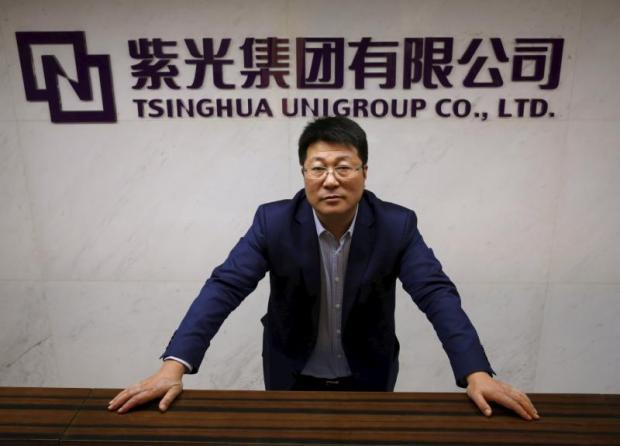
Zhao Weiguo, former president of Tsinghua Unigroup, has been arrested for procurement irregularities. Image: Twitter
Concerns about the need to“catch up” in the crucial industry are being aired at the topmost level of government. Chinese President Xi Jinping acknowledged during a June 28 visit to Huagong Tech Co Ltd, a Wuhan-based laser-cutting firm, that“optoelectronics is a strategic high-tech industry with a wide range of applications.”
“China has the conditions to take the lead in achieving breakthroughs” in the industry, Xi said.“It is crucial to break through the key core technologies. We must adhere to problem-solving, give full play to the advantages of China's national system, work hard and catch up, and accelerate the realization of scientific and technological self-reliance and self-improvement.”
Sanction s and strangulationOver the past two years, Xi has said that missing key core technologies were a reason why China was“strangled” by other countries in its technological development and ambition. The term“strangulation,” or“ka bozi” in Mandarin, is now a buzzword among Chinese netizens.
Originally,“ka bozi” came from the word“bottleneck.” But after the US put Chinese tech giant Huawei Technologies on a trade black list in May 2019, a move that Huawei said last September resulted in US$30 billion worth of losses to its telecom businesses, Chinese officials started using“ka bozi,” which also means“strangulation,” to describe the US sanctions.
Zhang Jing, an interpreter of China's Foreign Ministry, officially translated“ka bozi” into“strangulation” during a US-China summit in April last year.
Since early 2020, Washington has also stopped the Netherlands from exporting its extreme ultraviolet (EUV) lithography equipment to China, hobbling its ability to produce high-end chips between 22-nanometer (nm) and 7-nm. Smaller nodes can increase the transistor density on a chip, achieving faster calculations and lower power consumption.
Last month, media reports said the Biden administration was also seeking to bar Chinese companies from obtaining deep ultraviolet (DUV) lithography tools, which make chips ranging between 28-nm and 90-nm.
Media reports have also said the US is considering banning China-based memory chip makers from obtaining US equipment that could make NAND chips with more than 128 layers. Last month, Micron had started mass production of its 232-layer stacked NAND in Singapore.
A recent 163.com news report said senior Chinese officials in a July meeting reviewed the development of the national chip sector but found that progress in areas may have been overstated and that many investments had failed.
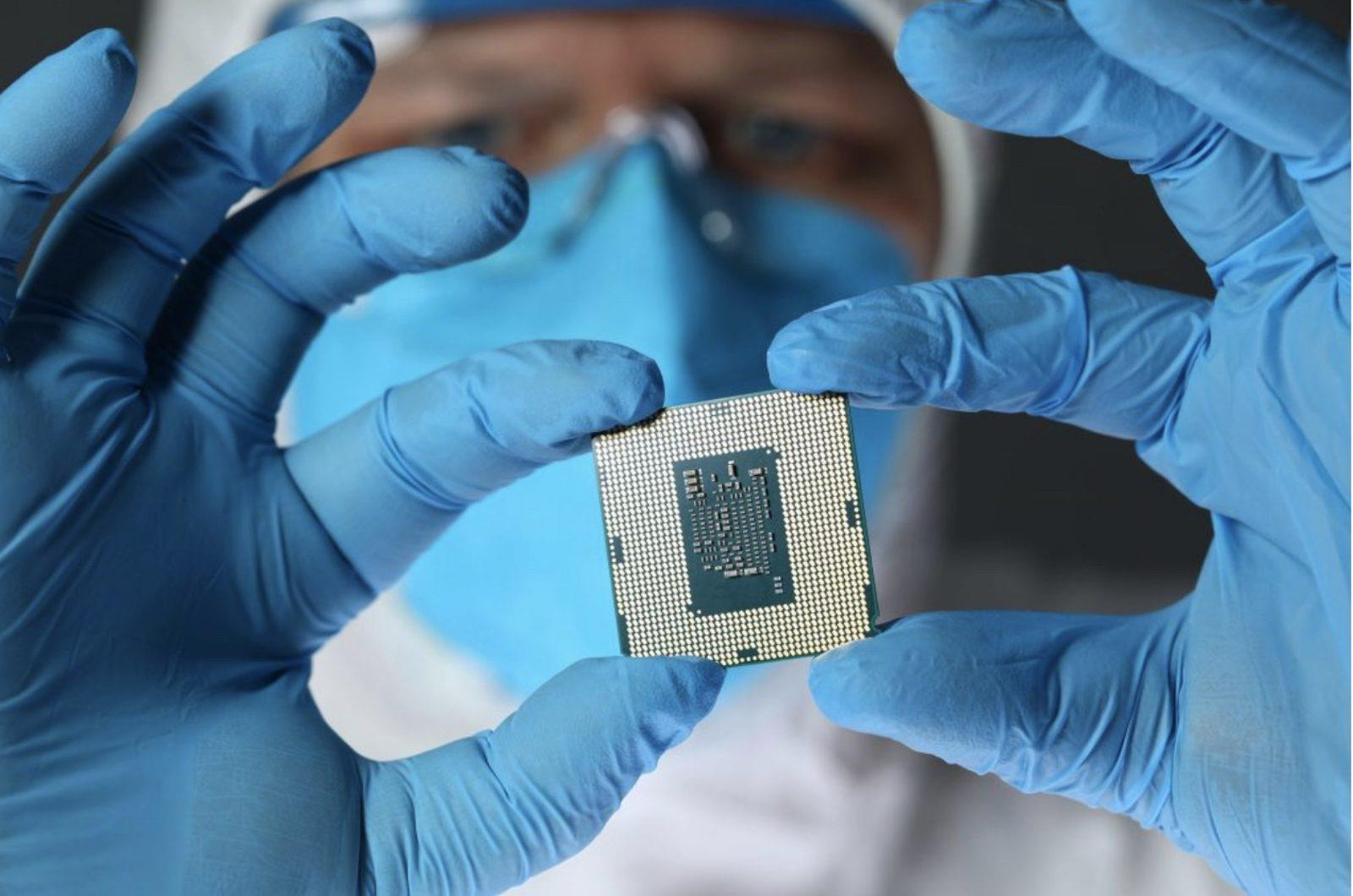
China is playing catch-up in chip manufacturing. Image: Twitter
Citing unnamed sources, the same Chinese report said the officials were upset that Xi's government had spent more than $100 billion to boost the chip sector over the past decade but the efforts failed to produce anticipated outcomes. The arrests of Tsinghua Unigroup's Zhao Weiguo and MIIT's Xiao Yaqing swiftly followed the report's publication.
Diao Shijing, a former co-president of Unigroup, Ding Wenwu, general manager of the Big Fund, and Li Luyuan, chairman of Unigroup's subsidiary Beijing Uni Science and Technology Service Group Co Ltd, were also arrested, Caixin reported.
The Communist Party of China's Central Commission for Discipline Inspection (CCDI), an anti-corruption body, said on August 9 that two ex-executives and one current employee of SINO-IC Capital Ltd, which manages the Big Fund, were under investigation. They included former director Du Yang, deputy manager Yang Zhengfan and former manager Liu Yang.
Ineffective investmentsThe Big Fund was initiated in 2014 by China Development Bank Capital, China National Tobacco Corporation, Beijing E-town International Investment & Development Co Ltd, China Mobile, Shanghai Gushing Group, China Electronics Technology Group, Beijing Unis Communications and Sino-IC Capital.
It had an initial funding of 120 billion yuan (US$17.8 billion) to invest in semiconductor sector firms specializing in design, packaging, equipment or materials.
Tsinghua Unigroup, a 51%-owned unit of Tsinghua University, faced financial difficulties in late 2020 and was placed under restructuring last year. Last November, the CCDI said Gao Songtao, who served as the vice president of Sino IC Capital from October 2014 to November 2019, was under investigation for unclear reasons.
Chinese information technology experts have mixed views about the slow growth of China's chip-making technology and capabilities.
Some have said that government funding was spent partially on investing in stocks instead of supporting research. Others have claimed that China's investments had made some breakthroughs but they were not enough to build a lithography machine.
Chen Hang, an analyst of Founder Securities Co, wrote in a report in 2020 that China had started making its own EUV lithography tool beginning in 2006 and had already completed the research of its core technologies in June 2017.
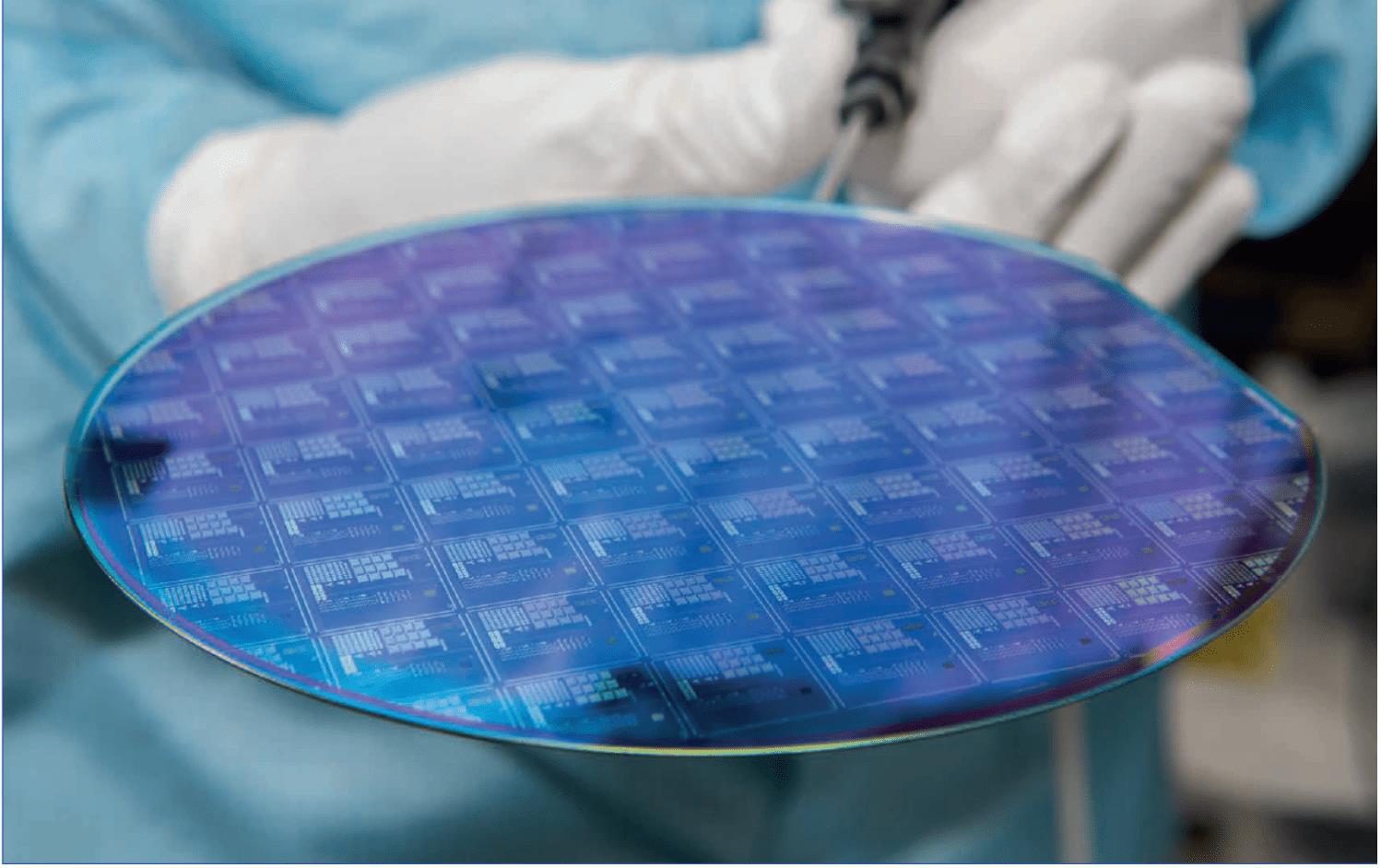
A DUV-made wafer used in the production of semiconductors. Photo: Supplied
He said the state-owned Shanghai Micro Electronics Equipment Group (SMEE) had planned to deliver a DUV immersion lithography tool that could make 28-nm chips by 2022.
According to SMEE's homegrown plan, it would get laser parts from Beijing RSLaser Opto-Electronics Technology, optical parts from Beijing Gopptix Technology and Changchun National Extreme Precision Optics, machinery parts from Beijing U-Precision Tech and immersion systems from Zhejiang Cheer Technology.
However, SMEE has not released any public updates for the past two years about progress on its self-developed lithography tool.
Import dependenceIn 2021, China's imports of chips rose 16.9% to 635.48 billion units from a year earlier while exports of chips increased 19.6% to 310.7 billion units, according to China's General Administration of Customs. By value, China's imports of chips surged 23.6% to $432.6 billion while exports were up 32% to $153.79 billion over the same period.
However, due to Shanghai's“zero-Covid” lockdowns, China's chip output fell 6.3% to 166 billion units in the first half of this year from a year earlier.
According to World Semiconductor Trade Statistics (WSTS), China was the largest semiconductor market in the world as sales of chips in the country rose 27.1% to $192.5 billion last year from 2020. Globally, sales of chips increased 26.2% to $555.9 billion.
Song Weijia, a researcher at China's National Academy of Innovative Strategy, wrote in an article in May that China should be patient in developing its chip-making technology and expect to make breakthroughs step by step.
“In recent years, a lot of news and opinion pieces talked a lot about 'technological breakthroughs' but people should always stay calm and have a clear mind,” Song said.“Even with some scientific achievements, there is a long way to go before they can be transformed into products.”
“Besides, people should also avoid calling ordinary product upgrades“breakthroughs” as exaggerated media reports could affect government departments' judgment and the country's policy-making and implementation,” Song added.
Song said small companies should not burn money to blindly chase scientific breakthroughs but leave the mission to scientists and high-level researchers.
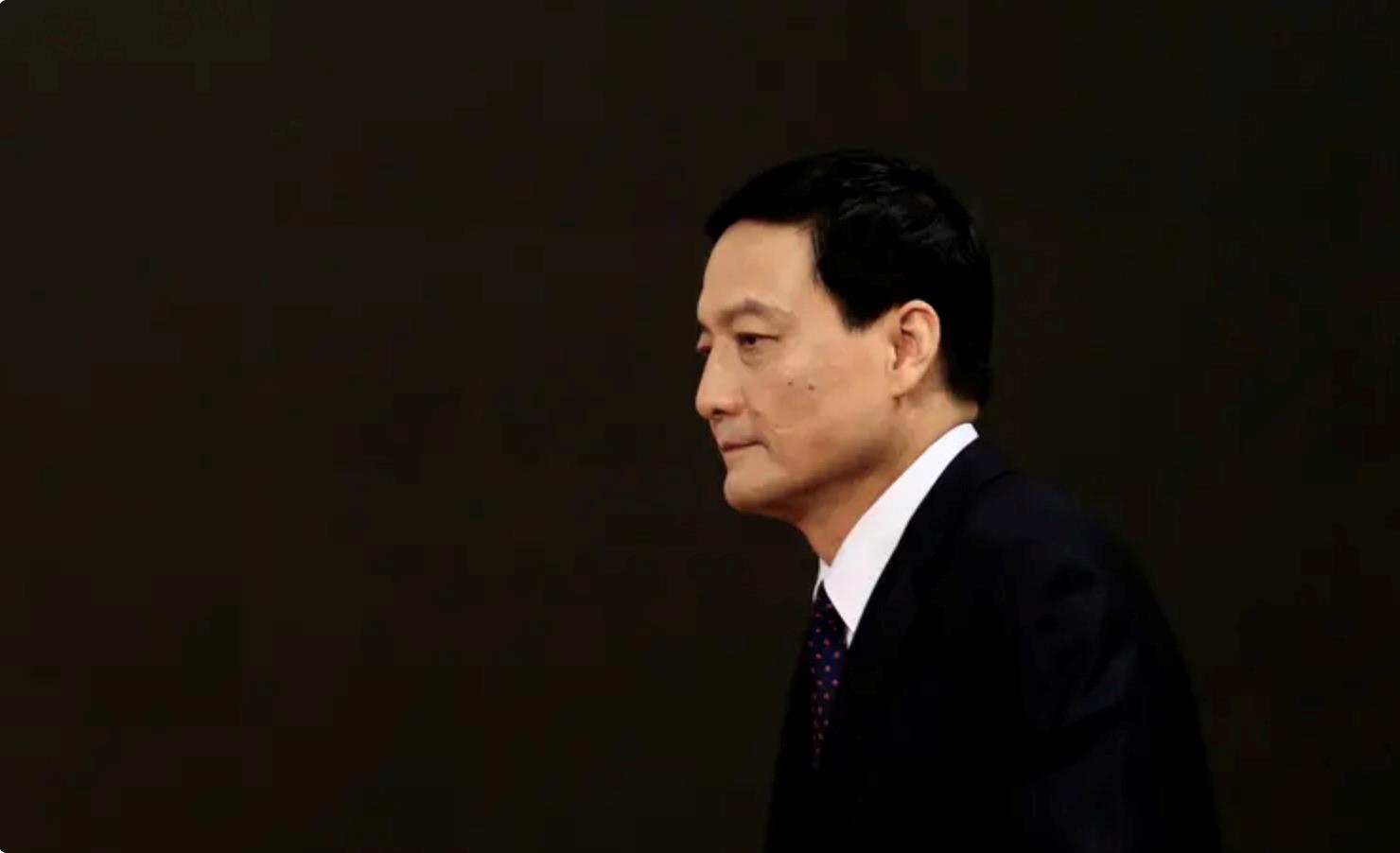
Xiao Yaqing, China's minister of industry and information technology, has been arrested for suspected violations of the Communist Party's discipline and laws. Photo: Twitter / Screengrab / Alarabiya News Young scientists
On August 12, Guangming Daily, a newspaper operated by the Chinese Communist Party's Propaganda Department, said a young scientist in Shenzhen had spent seven years on a single project and successfully purified photosensitive polyimide photoresist (PSPI), a key material used in chip-making.
The article said Teng Chao, a researcher at Shenzhen Institute of Advanced Technology, and his team used mathematical formulas to resolve problems during the experiments. It said their scientific achievements could allow China to produce its own PSPI and break the monopoly now held by Japanese and US suppliers.
On April 22 last year, Tsinghua University set up a School of Integrated Circuits and welcomed the admission of 137 top science students. Chen Xu, party secretary of Tsinghua University, said the new school would help China groom young talent and avoid being“strangled” by others.
Her comments came a few days after Xi delivered a speech at the university, which at the time was celebrating its 110th anniversary.
After one year, however, a Chinese article said the new school in Tsinghua had not won a lot of applause from the public as most students preferred to continue their study and work in the US. The article said the university spent 2.5 million yuan on each undergrad but did not get a lot of returns. It urged the university to change its approach.
Read: China's YMTC claims 3D NAND chip breakthrough
Follow Jeff Pao on Twitter at @jeffpao3

Legal Disclaimer:
MENAFN provides the
information “as is” without warranty of any kind. We do not accept
any responsibility or liability for the accuracy, content, images,
videos, licenses, completeness, legality, or reliability of the information
contained in this article. If you have any complaints or copyright
issues related to this article, kindly contact the provider above.

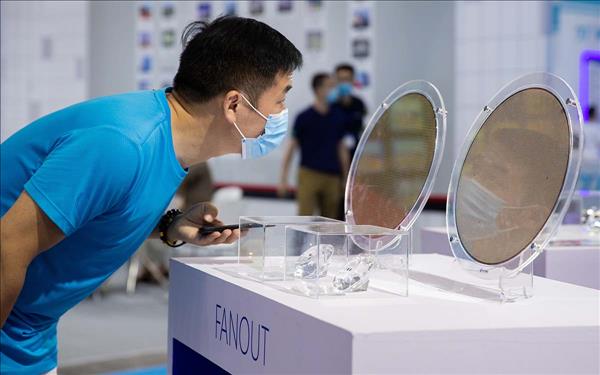
















Comments
No comment